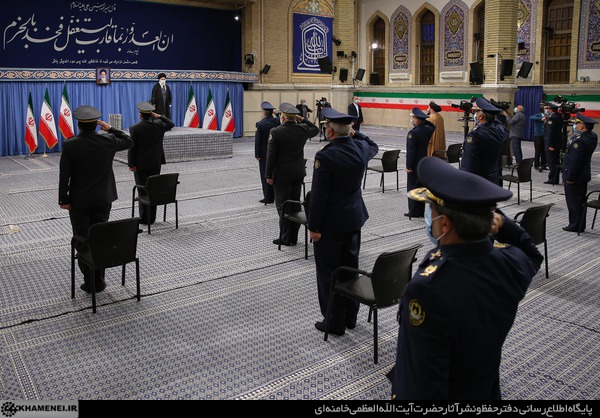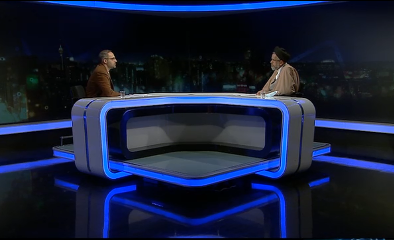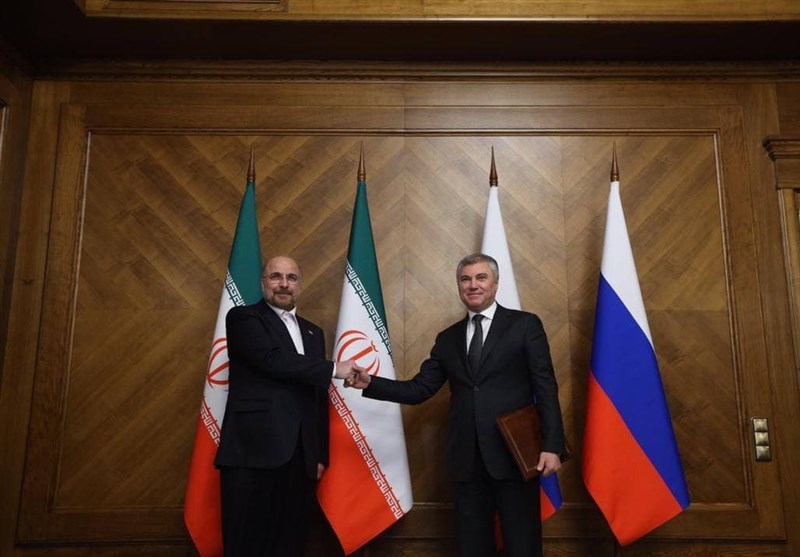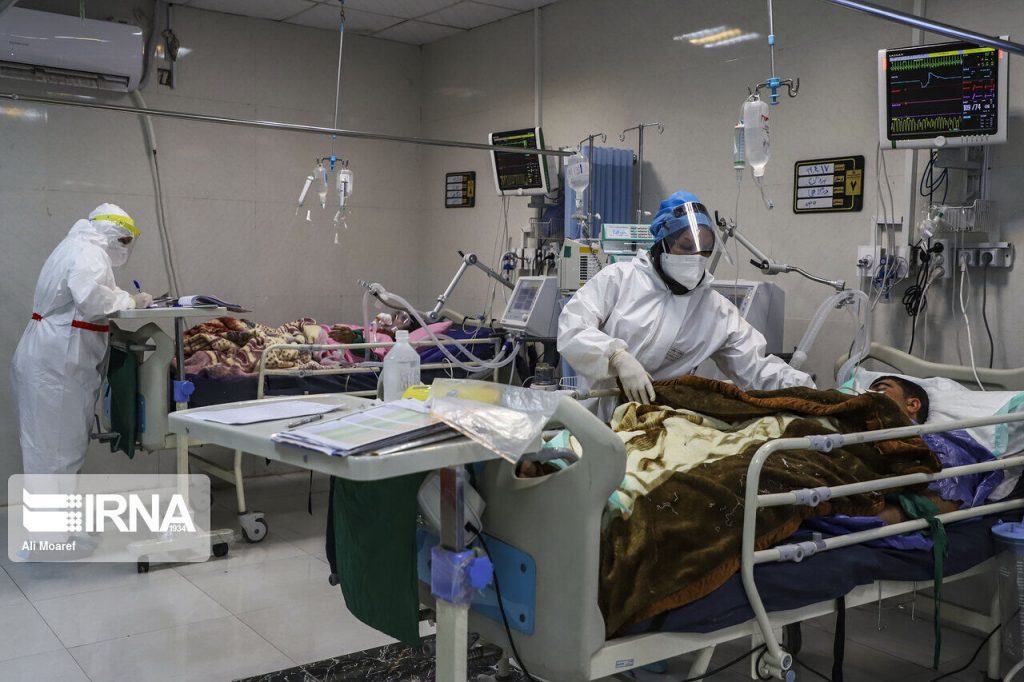
Catastrophe in the Budget Bill
The editorial of Tejarat emphasizes that the recent rejection of the budget bill by the Parliament can have seriously devastating consequences for Iran’s economy, particularly now that the country is grappling with coronavirus.
Recently, the Parliament rejected the budget bill and returned it to the government for amendments. Under these circumstances, two scenarios are possible: first, the bill will be amended and re-sent to the Parliament in time for being ratified before the end of the Iranian year (March 21), but this doesn’t seem very likely. The second scenario, which is more likely, is the partial ratification of the budget bill by the Parliament for the next year.
It seems that the government, which is at the end of its term, is not interested in amending the bill, and the Parliament does not possess the necessary leverage to put pressure on the government in this regard. Furthermore, the government and the Parliament have serious disagreement over the currency rate, which makes it unlikely that a quick agreement will be reached.
To this, we must add deliberate ambiguities in the policies of the new US administration with regard to Iran, as well as the fact that we are getting closer to the next presidential election in Iran. In any case, the country is facing many tough challenges. Given the sensitive economic and social situation due to coronavirus, any blunder in this regard will have catastrophic consequences.
It seems that rejecting the budget bill, as well as the ambiguity with regard to certain big decisions, will result in an increase in the forex price and will decrease the budget bill’s efficacy.
The Roots of the Economic Crises
The editorial of Iran newspaper expounds how instability in political relations results in instabilities and crises in the country’s economy.
One of the most important factors in creating economic crises is economic, political, and social instability which have different dimensions. There are many issues of instability in Iran in the political domain with regard to regional countries, America and nuclear issues. Lack of stability in this domain creates instability in the economy; it changes the economic variables and impacts the national economy.
In addition, election instabilities have a considerable impact in sparking off economic crises. Those taking office try to blame former officials and their performance. People’s political and social protests can also lead to instability. As a result of these instabilities, investors cannot act properly, and this will increase investment risk in the country. When investors cannot fulfil their roles in economic activities, the level of production in the country will be directly impacted, and production and economic growth will not increase.
With a drop in production, there will be a decline in supply in the market, and people’s demands will not be met. As a result, prices will go up and create inflation. Consequently, we are now facing a new crisis in the economy every day. As inflation rises, economic growth and employment plunge. Impacted by instabilities, the forex market will go through ups and downs that will directly impact the capital market. Other financial markets will also be impacted by these instabilities. These factors that are directly co-related lead to instability. Moreover, the decisions made by high-ranking officials play a significant role in creating instability.
Under these circumstances, these factors impact other areas as well. When there is turbulence in the forex market, it will directly influence the gold market, the price of imported goods, banking interest, capital markets, etc. And each sector will transfer the shock to other sectors. Consequently, instability continues to plague Iran’s economy.
As such, these problems and crises will have a domino effect on other economic sectors, making the country face continued challenges.
Obstacles to the Collaboration of the Parliament With the Government
The editorial of Arman Melli focuses on why the government’s budget bill was rejected by the Iranian Parliament and explains the possible ramifications.
The differences between the government and the Parliament over the public budget were certainly damaging and will create many economic problems for the country. But the Parliament thinks that when the budget is drafted with such a great budget deficit, it will cause inflation, which will be more damaging. That is why the public budget was not passed in the Parliament.
The government shouldn’t have taken this stance and should have reformed the budget bill and sent it back to the Parliament to resolve the issues of concern. But there are serious differences between the government and the Parliament in this regard.
If the Parliament doesn’t include the government’s reforms in the budget bill in its agenda, then the bill must be partially ratified until the next presidential election is held and the next government drafts and submits the budget bill.
The obstacles to collaboration between the government and the Parliament go back to their different approaches towards the economy. Currently, the government and the Parliament have differences over the general issues in the budget bill. To the Parliament, the budget bill couldn’t be reformed, which is why it was rejected.
Now, the country’s two branches are at loggerheads, so much so that for the first time in the history of Iran, the government’s budget has been rejected in its entirety. This happens when the differences between the government and the Parliament over general policies are very deep.
As we get closer to the upcoming presidential election, such differences will create further public dissatisfaction.
Development in Eclipse
The editorial of Ebtekar sheds light on the misperceptions in Iran regarding the issue of economic development.
These days, we witness disagreements over the issue of economic development in Iran. To realize this, one has to merely take a look at the proponents and opponents of the nuclear deal, the FATF, and the confrontation between those who support the free market versus the state economy. The ramifications of all these includes the absence of a realistic approach based on self-interest.
There are approaches towards the issue of development which if not properly understood, will result in widening the gap between Iran and its regional rivals. Instead of talking about self-evident issues regarding economic development, Iran must take steps towards productive measures in this field.
The global economy is interconnected and based on global values. Due to COVID-19, the world is witnessing a severe drop in global GDP. But in 2019, it was $142 trillion. Iran’s share, however, was about $380 billion. All economies are competing with each other. During the past 30 years, we have seen that the West and the East are competing to attract financial resources. Almost all countries manage laws, regulations and risks in such a way that they can get better ratings from international credit rating agencies and be more successful in attracting global capital.
For years, Iran has not been rated by credit rating agencies which assess the risk of investment all over the world from Russia to China and from Turkey to Bangladesh. Yet in Iran, such ratings are not taken seriously.
The second important issue is exploiting international financing opportunities. There is this mantra in Iran which holds that we have all the financial resources and do not need foreign investment. This is flat-out wrong.
Qatar, for example, is a wealthy country and has an abundance of financial resources. But for the Qatargas 2 project which requires $5.6 billion, the country has invested merely 20 percent and has financed the rest with loans from Japanese banks and other international banks.
Iran’s understanding of the world is far from the reality today, and consequently, Iran’s development is eclipsed.

Khamenei: We’ll Return to JCPOA Commitments Only if US Sanctions Are Lifted

Iranian Supreme Leader Ali Khamenei has doubled down on his position by saying that Iran will return to its commitments under the JCPOA only if the United States lifts its sanctions against this country. “America should practically and totally lift sanctions, not merely in words or on paper,” he asserted in a meeting with Iranian air force commanders. Khamenei also asserted that if the United States lifts sanctions, Iran will first “verify” to see if the sanctions were lifted “correctly” and “then we will return to the JCPOA commitments.”
“This is the decisive and irrevocable policy of the Islamic Republic establishment; all officials are unanimously in agreement in this regard and no one will renege on it,” he added.
Khamenei called the recent statements of European and American officials regarding the JCPOA “claptrap,” saying no one in Iran would listen to them. “Americans and Europeans have no right to set conditions because they violated their commitments to the JCPOA,” he said. “The one who should set conditions is the Islamic Republic establishment because it adhered to its commitments,” asserted Khamenei.
Khamenei also cautioned officials in Iran not to be intimidated by “the enemy” or resort to “the enemy” with regard to the country’s political and economic affairs.
Meanwhile, Iran’s Parliament has passed a bill obligating the government to produce 120 kilograms of 20 percent enriched uranium annually. The bill also says that if the financial, banking and oil-related sanctions on Iran are not lifted by February 20, the IAEA inspectors will have limited access to Iran’s nuclear facilities and the country will halt its voluntary implementation of the Additional Protocol.
The Official Website of Ali Khamenei
Intelligence Minister: If Iran Moves Towards Making a Nuclear Weapon, Others Are to Blame

Two top officials in Iran have not only acknowledged that Iran can produce nuclear weapons but threatened to do so.
Intelligence Minister Mahmoud Alavi said although Iran has no intention to make nuclear weapons, it might move towards that direction if it is pushed. In an interview with Iran’s state television, Alavi first insisted that his country’s nuclear program is peaceful.
“Iran’s nuclear industry is peaceful,” he noted, “As the supreme leader has said explicitly in his fatwa, producing a nuclear weapon is against the Sharia and the Islamic Republic [of Iran] will not move towards it and it is even haram.”
However, Alavi continued, if Iran makes nuclear weapons, the blame lies with those who pushed this country to take such a measure. “But if they corner a cat, it might behave in way that a free cat would not,” remarked Alavi. “If they push Iran to that direction, it is not Iran’s fault. It is the fault of those who have pushed [Iran]. Because under normal circumstances, Iran does not have such intentions at all.”
Referring to former US President Donald Trump, Alavi pointed out that he put Iran under considerable pressure but “that was an opportunity for our nuclear industry.” He continued: “We stopped enriching 20 percent uranium but succeeded to import 450 tons of yellow cake to the country which meets the needs of our nuclear activities for years.”
Meanwhile, another Iranian authority claimed that the country is on the verge of becoming a nuclear power. Ali Akbar Salehi, head of the Atomic Energy Organization of Iran, said: “The enemy does not believe that we are not after weapons, but they should know we have achieved all the thresholds of a nuclear power and we have it in our hands.”
Ghalibaf Goes to Russia, Snubbed by Putin

Iranian Parliament Speaker Mohammad Bagher Ghalibaf went to Russia to meet with Russian President Vladimir Putin to personally hand over Iranian Supreme Leader Khamenei’s message to him. But his meeting with Putin was cancelled, and instead he met with the head of the Russian Duma to whom he relayed Khamenei’s message.
In a meeting with his Russian counterpart, Ghalibaf said: “Just as the existence of a sovereign Iran benefits Russia, the existence of a powerful Russia, too, benefits Iran.” He also urged that changes in the White House will not impact the Tehran-Moscow relationship, adding that the US interferences in the region are particularly harmful to Iran and Russia.
The content of Khamenei’s letter to the Russian president hasn’t been released, but after his meeting with the head of the Duma, Ghalibaf stated on his Twitter account that the supreme leader’s message will be “a new chapter in the strategic relationship between Iran and Russia and will be a roadmap for the diplomacy of looking towards the East” in Iran.
Before Ghalibaf’s trip to Russia, it was announced that he was carrying Khamenei’s important, written message for Putin, but later it was reported that the meeting had not taken place because the “Kremlin’s heath protocols were not agreed upon by the Iranian side.”
This news drew widespread criticism and ridicule on social media, and even some users who are against the Iranian establishment saw it as a humiliation to Iran and objected to it. Many social media users interpreted it as Putin’s dismissive attitude towards Khamenei’s message.
In a different reaction regarding this trip, Iranian Minister of Information and Communication Technology Mohammad Javad Azari Jahromi said: “The lesson of Imam [Khomeini] was not to trust the White House or have hopes in the Kremlin Palace. Imam taught us to rely on people, particularly the destitute.”
Some observers see Ghalibaf’s trip to Russia as propaganda for his candidacy in the upcoming presidential election in Iran. One thing is for sure: the trip was anything but successful.
Coronavirus in Iran: Death Toll to Rise in Next 4 Weeks; Surge in New Cases in Khuzestan

Despite the fact that COVID-19 vaccination programs started months ago in many countries, Iran is yet to begin its own vaccination process, with a limited rollout scheduled for next week. Meanwhile, a member of the National Coronavirus Combat and Prevention Headquarters has said the country will be facing another rise in the coronavirus death toll in the next four weeks.
Massoud Mardani said that an increasing number of people have contracted the disease recently which might have been caused by the new virus variant. Mardani also noted that the refusal to observe health protocols, the increase in domestic travel, the holding of cultural festivals for the revolution anniversary and the reopening of businesses are among the reasons for the new wave of this disease. In addition to Mardani, Mohammad Talebpour, who heads Sina Hospital in Tehran, pointed out that we should be expecting a “dangerous phase” of COVID-19 during the upcoming weeks.
In the meantime, another official raised the alarm on the surge in coronavirus cases in Khuzestan province. Dean of Jundishapur University of Medical Sciences in Ahvaz announced the new wave of COVID-19 will be even higher than the first one. Furthermore, Khuzestan Governor Gholam Reza Shariati recently stated that the number of coronavirus hospitalizations has risen threefold from 85 to 260 on a daily basis. Local authorities in Kermanshah and Hormozgan have also reported a rapid surge in the number of coronavirus patients in those provinces.
According to the latest tally by Iran’s Health Ministry, more than 1.47 million people in this country have already contracted coronavirus, out of whom more than 58,500 lost their lives. However, official statistics in Iran have always been under question and it is said to be three to four times higher than what is announced.
